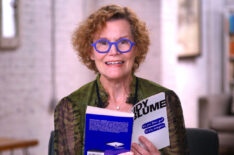Judy Blume
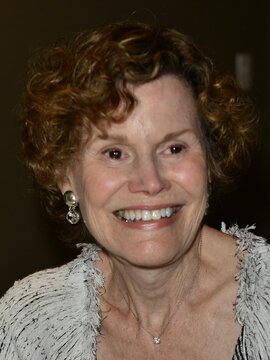
Writer
Birth Name: Judith Sussman
Birth Date: February 12, 1938
Age: 86 years old
Birth Place: Elizabeth, New Jersey
Celebrated young adult author Judy Blume held a special place in the hearts of countless preteen readers for her frank, honest and moving novels about real teens and their emotional issues in such memorable books as Are You There, God? It's Me, Margaret (1970), Blubber (1972) and Tiger Eyes (1981). Blume's books shied away from discussing thorny subject matter like sex, religion, divorce and friendship in elliptical terms, preferring instead to speak directly to her readers about the complex feelings that arose around these topics. In doing so, Blume became not only a beloved author for young readers, but also something of a friend and parental figure to which they could turn for support when they struggled to communicate with their own families. Blume's books naturally drew fire from censors, who sought to ban them from libraries due to content, but she remained a staunch defender of her own work, as well as other authors whose stories had come under fire. In doing so, Blume became a storied figure in American fiction, one whose love and respect for her readers was matched equally by her dedication to the sanctity of the written word.
Born Judith Sussman in Elizabeth, NJ on Feb. 12, 1938, Judy Blume was the daughter of dentist Ralph Sussman and his wife, Esther, a homemaker. Her mother imparted her love of literature to her daughter, who spent most of her childhood "making up stories inside of my head," as she later said. After graduating from high school in 1956, she briefly attended Boston University before taking a leave of absence following a bout with mononucleosis. Blume subsequently enrolled at New York University, where she met and married fellow student John Blume before graduating with a degree in teaching in 1961. She became a homemaker after the birth of the couple's two sons, Randy and Lawrence, but soon found that she needed a creative outlet to balance her stay-at-home duties while her children attended preschool. Blume took writing courses at New York University, then wrote several short stories that were accepted in magazines. Her first children's novel, The One in the Middle is the Green Kangaroo, about a second-grader who found the attention he craved by appearing in a school play, was published in 1969.
Though her efforts found little support from her husband, Blume continued to write for preteen readers. Her next book, Are You There, God? It's Me, Margaret (1970), drew high praise for its honest depiction of preteen issues as embodied by its protagonist, a sixth-grade girl struggling with both religion and puberty. However, the book also drew fire for its frank discussion of physical topics like menstrual periods, which marked the beginning of Blume's long battle with censorial entities. Undaunted, she launched into a celebrated series of young adult books, starting with 1971's Then Again, Maybe I Won't, which covered the same territory as Margaret, only from the male perspective. It's Not the End of the World (1972) examined the effect of divorce on children, while Blubber focused on bullying and weight issues. That same year, she launched the popular "Fudge" series with Tales of a Fourth Grade Nothing (1972), which viewed the challenges of getting along with siblings in a series of comic adventures. One of her most controversial novels was Forever (1975), which took a serious look at teenagers and sex. Its matter-of-fact approach to the subject matter again earned Blume a spot on banned-book lists, but also contributed greatly to the national discussion on both teen sexuality and censorship.
After divorcing her husband in 1975, Blume tackled her first novel for adults with Wifey. The novel, which focused on a bored New Jersey housewife's extramarital affair with an old boyfriend, rose to the top of the New York Times bestseller list and was followed in 1983 by Smart Women, about a divorcée who fell for her best friend's ex-husband. Blume also maintained her career in young adult fiction during this period, penning what many considered her best work in that milieu with Tiger Eyes (1981), about a girl contending with her father's murder. The extremely personal nature of Blume's writing generated letters from hundreds of young readers seeking advice from her about their own lives, which were collected in a 1986 compilation called Letters to Judy: What Your Kids Wish They Could Tell You. The profits from the book were used to help finance the KIDS fund, a non-profit organization established by Blume in 1981 to help young people find ways to communicate with their parents.
In the 1990s, Blume became a powerful proponent for free speech advocacy, due in part to her own problems with censorship. She edited 1999's Places I Never Meant to Be, a collection of stories by authors like Norma Klein, Rachel Vail and Jacqueline Woodson, all of whom had suffered censorship or outright banning in the United States. For her efforts, as well as for her celebrated body of work, she received the Library Association's Margaret A. Edwards Award in 1996 for contributions to young adult literature. The Library of Congress named her a Living Legend in 2000, while National Book Foundation awarded her the Medal for Distinguished Contribution to American Letters in 2004. Her third book for adults, Summer Sisters (1998), also surfaced during this period, selling over three million copies.
Though several of Blume's books were adapted for film and television, most notably the Fudge series, which became a weekly children's comedy program (ABC/CBS, 1995-97), she did not participate in an actual film adaptation of her work until 2012, when she co-produced and penned the screenplay for "Tiger Eyes" (2012). Her son Lawrence collaborated on the script in addition to serving as director on the film. The news of the film's release was sorely dampened by Blume's announcement in August of that year the she had been diagnosed with breast cancer. In a post on her blog, Blume revealed that she had undergone a mastectomy and reconstruction prior to her recovery. She also shared her previous experience with cervical cancer, which she had undergone in the early 1990s. By Paul Gaita
Credits

Live with Kelly and MarkStream
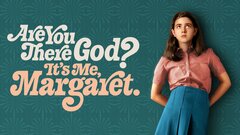
Are You There God? It's Me, MargaretStream
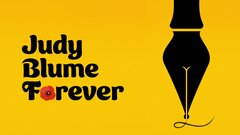
Judy Blume ForeverStream

GMA3: What You Need to Know

The Kelly Clarkson ShowStream

Today With Hoda & Jenna

Late Night With Seth MeyersStream

The Tonight Show Starring Jimmy FallonStream

The Social

CBS This Morning

Tiger Eyes

Tiger Eyes

Rock Center With Brian Williams

Watch What Happens Live With Andy CohenStream

etalk

InnerVIEWS With Ernie Manouse

Tavis Smiley

The View
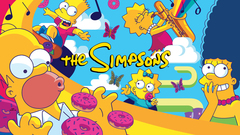
The SimpsonsStream

CBS News Sunday Morning

Good Morning America

Canada AM


